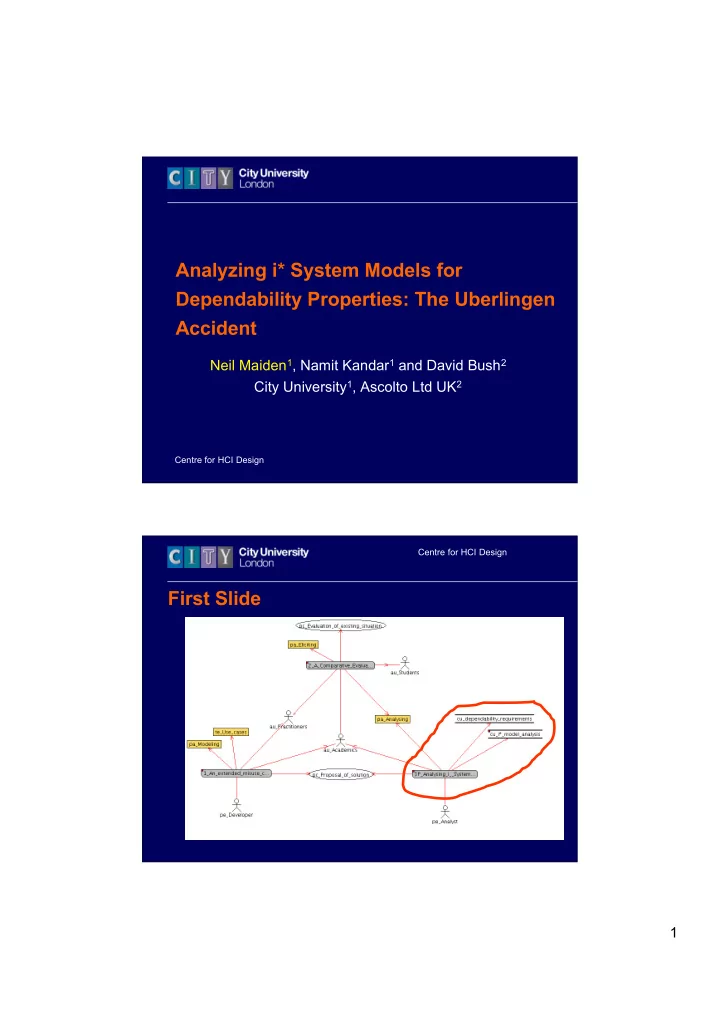

Analyzing i* System Models for Dependability Properties: The Uberlingen Accident Neil Maiden 1 , Namit Kandar 1 and David Bush 2 City University 1 , Ascolto Ltd UK 2 Centre for HCI Design Centre for HCI Design First Slide 1
Centre for HCI Design Analyzing Dependability Properties Pressing need in requirements – Determine properties such as reliability and safety of socio-technical systems – Methods such as HAZOPS not always suitable – Can requirements models such as i* help? Exploratory retrospective analysis – Model socio-technical systems during Uberlingen air accident in 2002 using i* – Analyze i* models with derived treatments – Explore whether classes of problems that occurred might have been predicted – Refine and re-apply treatments to other case studies Centre for HCI Design Uberlingen Accident Evening 1st July 2002, in Swiss-controlled air space Two planes collided in mid-air, killing 71 2
Centre for HCI Design Zurich Air Control Centre Boe757 A320 TU154M Planned flights Flight information to control Controller Radar Radar Assistant Planner Executor Friedrich shaven Centre for HCI Design Zurich Designed System RP Be alerted if no safe separation Flight traffic Not information overloaded Strips received Flights Traffic managed in managed timely efficiently manner RE 3
Centre for HCI Design Zurich System on 1st July 2002 RP Be alerted if no safe separation Flight traffic Not information overloaded Strips received Flights Traffic managed in managed timely efficiently manner RE Centre for HCI Design Analytic Treatments 1. Increased actor dependencies If actor fulfils 2 or more roles, do additional • dependencies risk overloading dependee actor RE was dependee in 17 rather than 10 dependencies • Indicative of increased actor workload • 2. Unachieved goals and soft goals RE actor cannot achieve critical soft goal not • overloaded if RP not present But need to extend expressiveness of i* models with • KAOS patterns [Darimont & van Lamsweerde 1996] Infer FAIL TO ACHIEVE if dependee not present • Not all missing dependencies are detrimental • 4
Centre for HCI Design Future Work Develop formal heuristics – Analyze formally-expressed dependability properties of socio-technical systems expressed as i* SD and SR models – Derive from diverse sources including published requirements and safety-critical case studies – Extend i* expressiveness with KAOS goal patterns – Re-apply to other case studies Extensions to REDEPEND – Explore use of actor agents, roles and positions in i* – Implement formal heuristics in graphical tool to analyse system models to inform early requirements analysis Centre for HCI Design Conclusions Quality features addressed – Dependability properties such as reliability and safety Novelty and contribution – Integrating important treatments in RE representations Contribution to research and practice – Exploration of scaleability and applicability of RE research outcomes to real problems Main problems – Position paper applied to one case study Scaleability – Do not know yet! 5
Recommend
More recommend